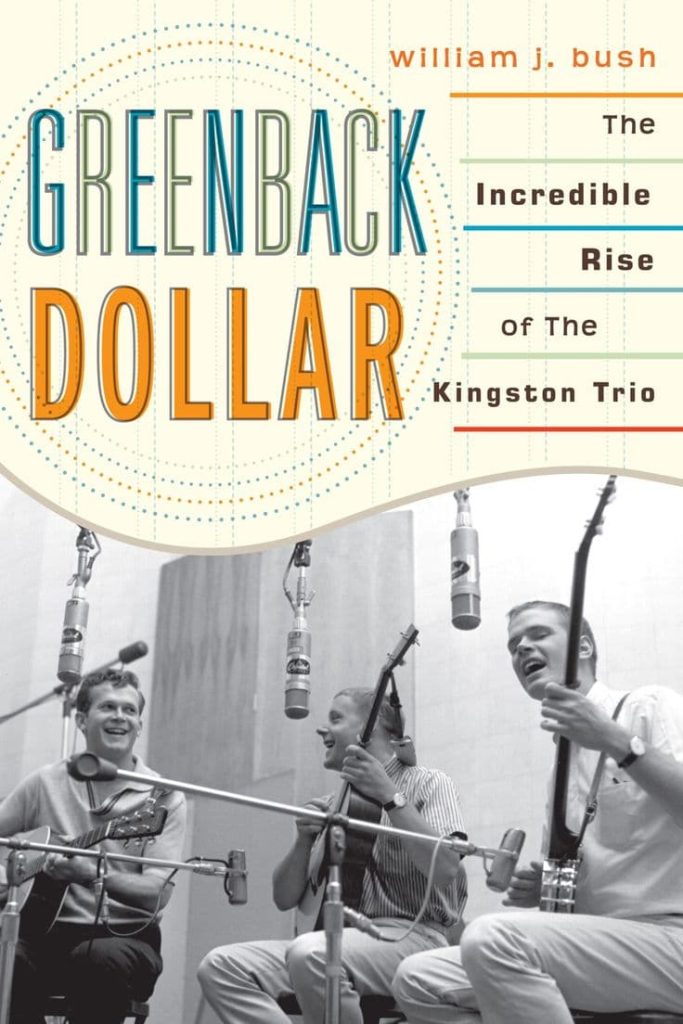
“Greenback Dollar” – The Kingston Trio’s Folk Rebellion Wrapped in Song
Released in 1963, “Greenback Dollar” by the Kingston Trio became an essential track of the American folk revival, reflecting the trio’s knack for blending traditional themes with a modern spirit. Written by Hoyt Axton and Kenneth Ramsey, the song captures the restless spirit of a troubadour, prioritizing freedom and self-expression over material wealth. While it didn’t reach the top of the charts, “Greenback Dollar” resonated with a growing folk audience, becoming one of the trio’s signature tunes and leaving an enduring legacy in the folk genre.
At its core, the song tells the story of a wandering musician who dismisses money in favor of personal freedom, singing, “I don’t give a damn about a greenback dollar / Spend it fast as I can.” These lyrics embody a rebellious attitude, challenging the societal focus on wealth and status. In the 1960s, this sentiment aligned perfectly with the countercultural movements brewing across the U.S., where young people were questioning traditional values and seeking alternative ways of living. The song’s carefree attitude—wrapped in a catchy, singalong chorus—made it a favorite among folk enthusiasts who embraced music as a form of protest and personal liberation.
The Kingston Trio’s performance of “Greenback Dollar” enhances its freewheeling message. With a lively tempo, strumming guitars, and tight vocal harmonies, the song exemplifies the trio’s polished yet energetic style. Their approach to folk music—blending traditional sounds with a pop sensibility—helped make songs like this accessible to mainstream audiences, introducing many listeners to folk traditions for the first time. The trio’s smooth harmonies and crisp guitar work lend the song a joyous quality, masking the underlying defiance with a light, easygoing feel.
Despite its popularity, the song encountered some controversy. The original lyrics included the line “I don’t give a damn about a greenback dollar,” but at the time, the word “damn” was considered too profane for radio airplay. Capitol Records, the Kingston Trio’s label, edited out the word in the single’s release, replacing it with a conspicuous silence. This censorship unintentionally added to the song’s rebellious charm—listeners would knowingly fill in the missing word, and the silent pause became a playful, unspoken connection between the band and their audience.
Though “Greenback Dollar” didn’t chart as highly as some of the Kingston Trio’s earlier hits like “Tom Dooley” or “Where Have All the Flowers Gone,” it still became a well-loved anthem among fans. The song reflects a transitional moment in folk music, where the Kingston Trio’s polished sound began to give way to the more politically charged work of artists like Bob Dylan and Joan Baez. However, the Kingston Trio’s influence cannot be overstated—they laid the groundwork for the folk revival, bringing folk music to college campuses and radio stations across the country.
The song’s enduring appeal lies in its universal message. Even decades after its release, “Greenback Dollar” resonates with those who feel disillusioned by materialism and long for a life guided by passion rather than profit. Its catchy melody, lively rhythm, and singalong chorus ensure that it continues to be enjoyed, whether around campfires, in coffeehouses, or by fans rediscovering the folk revival.
“Greenback Dollar” stands as a testament to the Kingston Trio’s ability to balance tradition with accessibility, rebellion with charm. It remains a joyful ode to freedom, reminding listeners that some of life’s greatest rewards—music, love, and adventure—can’t be measured by the size of a bank account. Even today, the song serves as a gentle reminder that sometimes, it’s okay to toss aside the chase for wealth and sing your heart out instead.